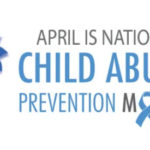The loss of a loved one can be difficult to confront. That difficulty might have been heightened in recent years, when a global pandemic has caused the death of millions, including many people who were otherwise healthy prior to contracting the COVID-19 virus.
Each individual may experience the grieving process in their own unique way, but the American Psychological Association notes that researchers have found that social support and healthy habits can help most people recover from loss. The APA also urges individuals to speak with a licensed mental health professional if they are dealing with severe or complicated grief, a condition marked by broad changes to all personal relationships, a sense of meaninglessness, a prolonged yearning or searching for the deceased, and a sense of rupture in personal beliefs.
The APA reports that some additional strategies may help grieving individuals process and come to terms with the loss of a loved one.
• Discuss the death of your loved one.
The APA notes that avoiding talking about a deceased loved one can result in isolation and a disruption in the healing process. Speaking about the death of a loved one can help individuals understand what happened, and that understanding can facilitate the healing process.
• Take care of your health.
Mental Health America, a community-based nonprofit committed to promoting mental health, urges individuals dealing with the loss of a loved one to take care of their own health. After losing a loved one, some people may be in danger of developing a dependence on medication or alcohol that they’re using to deal with their grief. It’s important that grieving individuals recognize that threat and the role that maintaining one’s personal health can play in the healing process. Regular contact with your physician, routine exercise and a healthy diet can promote personal health and may help individuals avoid the pitfalls of addiction after the death of a loved one.
• Accept your feelings.
The APA notes that it’s normal for grieving individuals to experience a range of emotions, including sadness, anger and exhaustion. Individuals who feel overwhelmed by their emotions are urged to speak with a licensed mental health professional. Such professionals can recommend various strategies to cope with emotions that can sometimes feel overwhelming.
• Celebrate your loved one.
The APA recognizes that many people find the anniversaries of a loved one’s death to be especially difficult. The APA recommends individuals use such anniversaries as opportunities to celebrate their loved one’s life. Plant a garden in a loved one’s memory or honor them with a donation to a charity they supported. Such gestures can add some positivity to the anniversary and help in the healing process.
The death of a loved one can inspire a range of emotions. Various strategies can help individuals cope with such losses. For a list of local grief and loss support groups, visit https://tinyurl.com/3ea5xjeb.












